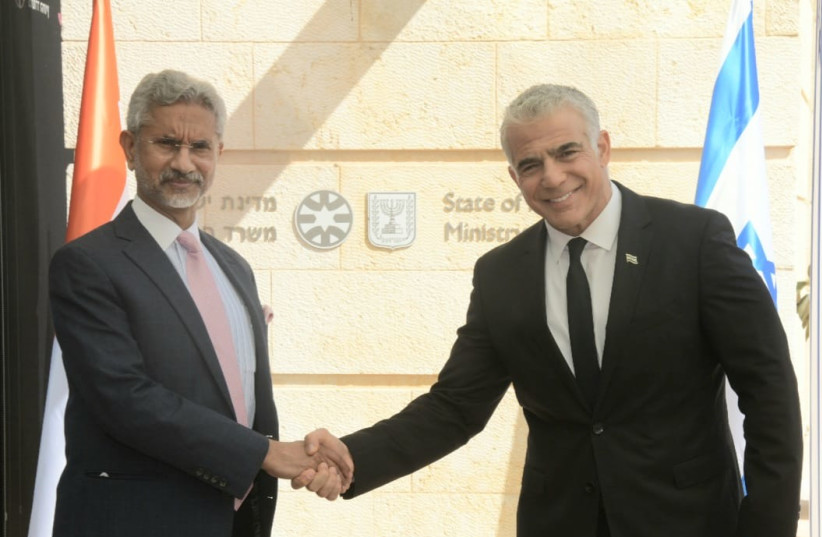Israel and India have agreed to form a task force that will build a 10-year cooperation plan to identify new areas in defense cooperation between the two countries.
The plan, which will include defense procurement, production and research and development, was agreed upon last week during a visit last week by Ajay Kumar, the director-general of the Indian ministry of defense.
Kumar met with his Israeli counterpart, director-general of the defense ministry Maj.-Gen. (ret.) Amir Eshel at the Kirya military headquarters in Tel Aviv for the 15th meeting of the Joint Working Group on defense cooperation.
According to The Times of India, during the meeting, the two officials discussed bilateral military-technological cooperation as well as strategic challenges in the Middle East and Indo-Pacific regions.
“The two sides reviewed the progress made in military-to-military engagements, including exercises and industry cooperation,” an Indian official was quoted by the report, adding that “it was also decided to form a new sub-working group on defense industry cooperation.”
India recently participated in the Blue Flag international air drill, sending for the first time a Mirage fighter squadron to Israel. India also participated in Blue Flag 2017.
Israel has been supplying India with various weapons systems, missiles and unmanned aerial vehicles over the last few years, making India one of Israel’s largest buyers of military hardware.

A 2020 report by the Stockholm International Peace Research Institute found that Israel’s arms exports over the past four years have been the highest ever and accounted for three percent of the global total.
The Jewish state was found to be the world’s eighth-largest arms supplier and its arms exports were 77% higher than between 2010 to 2014.
According to the report, the top three customers of Israeli arms were India (45% of the total amount), Azerbaijan (17%), and Vietnam (8.5%). Weapons sales to India have consistently totaled over $1 billion per year.
In September, India purchased four Heron MK II from Israel Aerospace Industries in a deal worth some $200 million as part of the country’s plans to upgrade the military amid its ongoing border strife with China.
The Indian Air Force already operates more than 180 Israeli-made UAVs, including IAI-made Searchers and 68 unarmed Heron 1s, for surveillance and intelligence gathering, as well as a fleet of IAI-produced Harpy UAVs, which carry a high-explosive warhead and self-destructs to take out targets such as radar stations.
Last year the Indian cabinet approved an order of two Phalcon AWACs from Israel in a deal reportedly about $1b. that had been in the works for the past few years.
Mounted on a Russian Ilyushin-76 heavy-lift aircraft the system has Active Electronic Steering Array (AESA), L-Band radar with 360° coverage and can detect and track incoming aircraft, cruise missiles and drones before ground-based radars.
The first three Phalcon AWACS were obtained by the Indian Air Force in 2009 after a $1.1b. deal was signed between India, Israel, and Russia in 2004.
The two countries have also signed contracts to manufacture and supply BARAK 8/MRSAM missile kits for the Indian Army and Air Force.
The MR-SAM system, jointly developed by India’s Defence Research and Development Organisation (DRDO) in close collaboration with Israel's Israel Aircraft Industry, is a land-based configuration of the long-range surface-to-air missile (LRSAM) or Barak-8 naval air defense system.
Able to shoot down enemy aircraft at a range of 50 to 70 km., it will help to protect India from enemy aircraft and will replace the country’s aging air defense systems.
